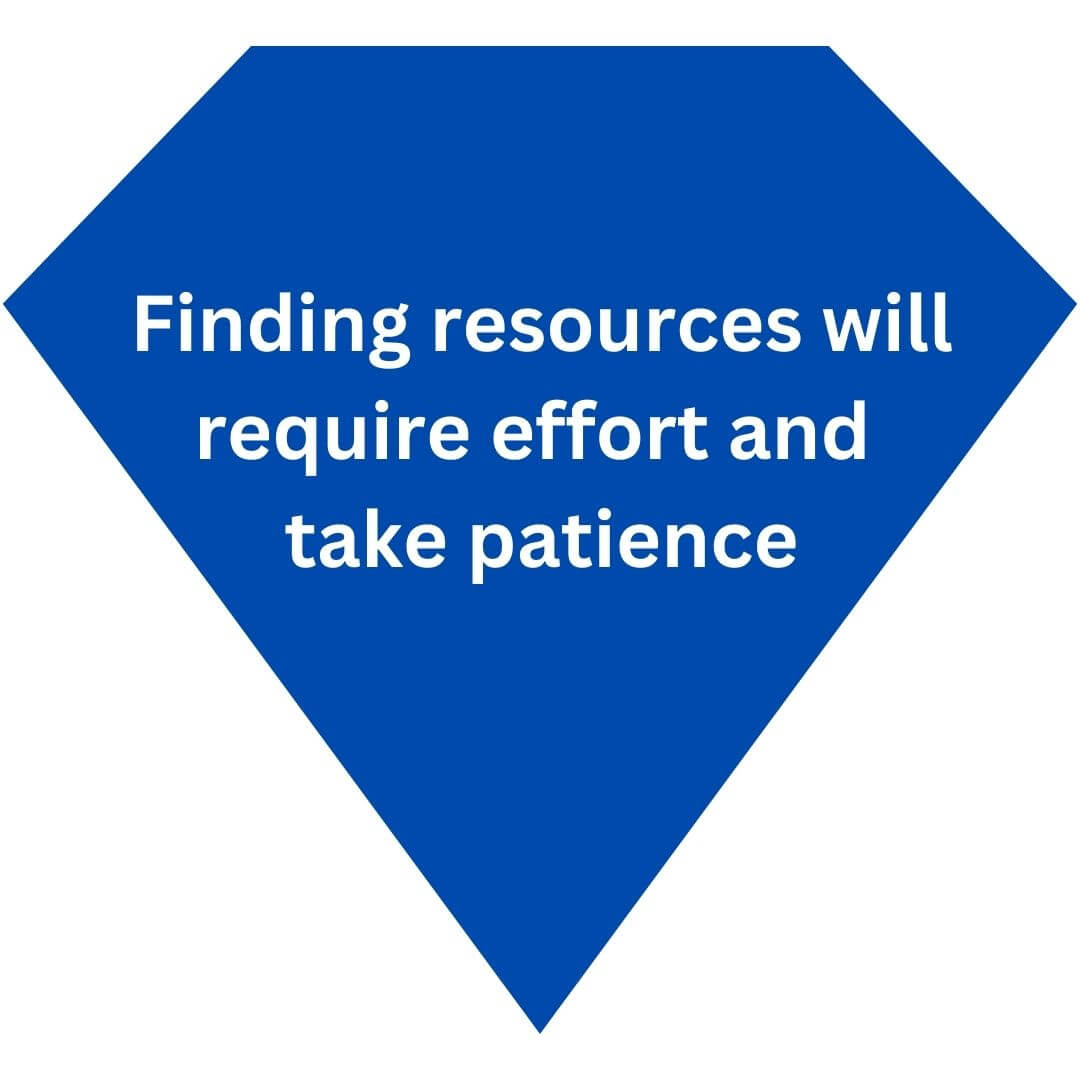
Taking care of a spouse is a noble and selfless act, but it can also take a toll on your finances. As a spousal caregiver, you may have to give up your job or reduce your work hours, which can cause financial strain. In this post, we’ll guide you through the process of looking for financial support as a spousal caregiver, including understanding the basic eligibility criteria, the types of financial support currently available, and how to apply for them. By understanding your options, you can take advantage of the financial support available and ease the financial burden of caregiving.
When people ask how they can help you…this is one area where someone else can do the preliminary work. This is where you can ask others for help. Who do you know who is good at doing research and legwork? They will be the ones to find the information for you and find the programs that you may qualify for.
National Family Caregiver Support Program (NFCSP)
Contact Your – Local Area Agency on Aging and Disability (AAAD)
This will take time, effort, and perseverance.
1. The role of a spousal caregiver in the US
As a spousal caregiver, your daily tasks may include assisting with personal care, administering medication, managing appointments with healthcare professionals, coordinating transportation, and maintaining a safe and comfortable living environment. Additionally, you may find yourself taking on household chores, managing finances, and providing emotional support during challenging times.
The commitment and love that spousal caregivers demonstrate are truly commendable, as they navigate the complexities of caregiving while also maintaining their own well-being. It is important to recognize the unique challenges that spousal caregivers face, such as the emotional strain of witnessing a loved one’s health decline and the difficulty in balancing caregiving responsibilities with personal needs and aspirations.
Understanding the role of a spousal caregiver in the US is crucial when it comes to unlocking financial support. This support can help alleviate some of the financial burdens associated with caregiving, allowing caregivers to focus on providing the best possible care for their spouse. By exploring various financial assistance programs, benefits, and resources available, spousal caregivers can find ways to access financial support that can help ease the financial strain and ensure a more sustainable caregiving journey.
2. The financial challenges faced by spousal caregivers and ways to get paid
One of the primary financial challenges faced by spousal caregivers is the loss of income. Many caregivers are forced to leave their careers or reduce their working hours to provide the necessary care for their spouse. This loss of income can have a significant impact on their financial stability and future prospects. Without a steady source of income, caregivers may struggle to cover basic household expenses, medical bills, and other financial obligations.
Moreover, spousal caregivers often face additional expenses related to their caregiving responsibilities. These expenses can include medical bills, medications, specialized equipment, home modifications, and transportation costs. These financial burdens can quickly add up and place a significant strain on the caregiver’s finances.
Another challenge faced by spousal caregivers is the lack of financial recognition or compensation for their caregiving role. Unlike professional caregivers who are often paid for their services, spousal caregivers rarely receive financial support for the care they provide. This lack of financial compensation can make it even more challenging for caregivers to meet their own financial needs and maintain their quality of life.
Additionally, the financial challenges faced by spousal caregivers can have long-term consequences on their own financial well-being. The time spent away from the workforce can result in gaps in employment history, reduced retirement savings, and limited Social Security benefits. These factors can contribute to financial insecurity and make it difficult for caregivers to plan for their own future.
In light of these financial challenges, it is crucial for spousal caregivers to explore available resources and support systems. This may include researching government programs, such as Medicaid or Medicare, that provide financial assistance or reimbursement for caregiving expenses. Additionally, caregivers should consider seeking professional advice from financial planners or eldercare specialists who can provide guidance on managing their finances and accessing available benefits.
By understanding and addressing the financial challenges faced by spousal caregivers, we can work towards creating a more supportive and inclusive system that recognizes the invaluable contributions of caregivers and provides them with the financial support they deserve.
3. Understanding the legal aspects and eligibility criteria for financial support
It is essential to familiarize yourself with the legal framework surrounding spousal caregiving. Each state in the US may have different regulations and programs in place, so it’s important to research and understand the specific laws in your state. This will help you navigate the process more effectively and ensure you don’t miss out on any potential benefits.
In terms of eligibility criteria, there are typically certain requirements that need to be met in order to qualify for financial support as a spousal caregiver. These criteria may include factors such as the severity of your spouse’s condition, their ability to perform daily activities independently, and financial limitations. It’s important to gather all the necessary documentation and evidence to support your case when applying for financial assistance.
One common avenue for financial support is through Medicaid’s Home and Community-Based Services (HCBS) program. This program provides various benefits, including financial assistance, to eligible spousal caregivers. To qualify, you may need to meet specific income and asset limits, as well as demonstrate that your spouse requires a certain level of care and assistance.
It is worth exploring other potential sources of financial support, such as long-term care insurance policies, veteran’s benefits, or social security benefits. Each of these options may have its own set of requirements and application processes, so it’s important to thoroughly research and understand the eligibility criteria for each.
By understanding the legal aspects and eligibility criteria for financial support, you can ensure that you are taking full advantage of the assistance available to you as a spousal caregiver. This knowledge will not only help alleviate the financial strain but also allow you to focus on providing the best possible care for your spouse without unnecessary worries.
4. Exploring government programs and benefits for spousal caregivers
When it comes to being a spousal caregiver, navigating the financial aspect can be a challenge. It is time-consuming and frustrating and you have to gather a bunch of information. However, there are government programs and benefits available in the United States that can provide much-needed support.
One such program is Medicaid (TENNCARE in the state of Tennessee). Medicaid offers a range of services for spousal caregivers, including home and community-based services. These services may help cover the costs of caregiving, such as respite care, personal care assistance, and transportation. Eligibility requirements vary by state, so it’s important to research and understand the specific guidelines in your area.
Another valuable resource is the Department of Veterans Affairs (VA). If your spouse is a veteran, they may be eligible for VA benefits, including the Aid and Attendance Benefit. This benefit provides financial assistance to veterans and their spouses who require the aid of another person in their daily activities.
Additionally, the Social Security Administration offers benefits for spousal caregivers through programs such as Social Security Disability Insurance (SSDI) and Supplemental Security Income (SSI). These programs provide financial support to individuals with disabilities or limited income, including spousal caregivers who meet the eligibility criteria.
It’s crucial to explore these government programs and benefits to understand what assistance is available to you as a spousal caregiver. Each program has its own set of requirements and application processes, so be sure to gather all the necessary information and seek guidance from relevant agencies or professional advisors if needed. By taking advantage of these resources, you can unlock financial support and alleviate some of the financial burdens associated with spousal caregiving.
5. Medicaid waivers and home and community-based services for family caregiving
When it comes to financial support for spousal caregivers in the US, Medicaid waivers and home and community-based services can be a crucial resource. These programs are designed to provide assistance to individuals who require long-term care services but wish to remain in their homes rather than move to a nursing facility.
Medicaid waivers are essentially programs that allow states to waive certain Medicaid requirements in order to provide additional services to individuals who would otherwise not qualify for Medicaid. These waivers can be instrumental in providing financial support to spousal caregivers. They may cover services such as personal care assistance, respite care, adult day care, and home modifications to accommodate the needs of the care recipient.
Home and community-based services, on the other hand, are specific programs that provide various support services to individuals in their homes or community settings. These services can be tailored to meet the needs of the care recipient and may include personal care, meal delivery, transportation assistance, and even counseling or therapy services. The goal is to ensure that individuals can receive the necessary care and support while remaining in the comfort of their own homes.
To access these Medicaid waivers and home and community-based services, spousal caregivers typically need to meet certain eligibility criteria, such as income and asset limits, as well as demonstrate that the care recipient requires a level of care that would otherwise necessitate nursing facility placement. Each state may have its own specific requirements and programs, so it is important to research and understand the options available in your particular state.
Applying for these programs may involve completing an application, providing documentation, and possibly undergoing an assessment to determine the level of care needed. It is advisable to seek assistance from local organizations or agencies specializing in elder care or Medicaid to navigate the application process and ensure that all necessary steps are taken.
Overall, Medicaid waivers and home and community-based services can be invaluable in providing financial support to spousal caregivers. These programs help alleviate the financial burden and enable caregivers to continue providing care to their loved ones in a familiar and comfortable environment. By exploring and accessing these resources, spousal caregivers can unlock the financial assistance they need to fulfill their caregiving responsibilities with greater ease and peace of mind.
6. Social Security Disability Insurance (SSDI) and Supplemental Security Income (SSI)
When it comes to financial support for spousal caregivers in the United States, Social Security Disability Insurance (SSDI) and Supplemental Security Income (SSI) can be crucial resources.
SSDI is a federal program that provides financial assistance to individuals who have a disability that prevents them from working. As a spousal caregiver, you may be eligible to receive SSDI benefits if your spouse has a qualifying disability and has worked enough to earn sufficient credits for Social Security. These benefits can provide you with a steady income to help offset the financial burdens of caregiving.
Supplemental Security Income (SSI), on the other hand, is a needs-based program designed to provide financial assistance to individuals with limited income and resources. If your spouse has a disability and meets the income and asset requirements, you may be eligible for SSI benefits as a caregiver.
It’s important to note that the eligibility criteria for both SSDI and SSI can be complex and may require documentation and proof of your spouse’s disability. Working with a knowledgeable attorney or disability advocate can greatly assist you in navigating the application process and ensuring that you provide all the necessary information.
In addition to financial support, SSDI and SSI may also provide access to other benefits, such as healthcare coverage through Medicare or Medicaid. These healthcare programs can be invaluable in covering medical expenses for both you and your spouse.
Remember, understanding the intricacies of these programs and the specific requirements for eligibility is crucial to accessing the financial support you need as a spousal caregiver. Consider seeking professional guidance to maximize your chances of successfully obtaining the benefits you deserve.
7. Veterans Affairs (VA) benefits for spousal caregivers
If you are a spousal caregiver of a veteran, you may be eligible for financial support through the Veterans Affairs (VA) benefits program. The VA recognizes the vital role that spousal caregivers play in providing care for veterans and has implemented various programs to offer assistance.
One such program is the Program of Comprehensive Assistance for Family Caregivers (PCAFC), which provides financial support to eligible spousal caregivers. Under this program, caregivers can receive a monthly stipend, access to healthcare coverage through the Civilian Health and Medical Program of the Department of Veterans Affairs (CHAMPVA), and respite care services.
To qualify for the PCAFC program, certain criteria must be met. The veteran must have a serious injury or illness incurred or aggravated in the line of duty on or after September 11, 2001. The caregiver must be the veteran’s spouse, and the care provided must be necessary for the veteran to remain in their home.
The application process for VA benefits can be complex, requiring documentation and evidence to support your eligibility. It is recommended to seek assistance from a Veterans Service Officer (VSO) or a veterans service organization to navigate through the process effectively.
It is important to note that VA benefits for spousal caregivers are subject to change, and eligibility requirements may vary. It is advisable to regularly check the VA website or consult with a VSO to stay updated on the latest information and requirements.
By tapping into the VA benefits available for spousal caregivers, you can unlock financial assistance and support that can make a significant difference in your caregiving journey. Take the time to explore the options available and ensure you receive the recognition and aid you deserve for the valuable care you provide to your veteran spouse.
8. Other financial assistance options for spousal caregivers or other family members
One option to explore is the Medicaid Cash and Counseling Program. This program allows eligible individuals to receive a cash allowance that can be used to pay for caregiving services, including spousal caregiving. The specific eligibility requirements vary by state, so it’s important to check with your local Medicaid office to see if you qualify.
Another potential source of financial assistance is through the Department of Veterans Affairs (VA). If your spouse is a veteran, they may be eligible for the VA’s Aid and Attendance benefit, which provides financial support to veterans and their spouses who require assistance with daily living activities. This benefit can help offset the costs of spousal caregiving.
Additionally, some states offer caregiver support programs that provide financial assistance to spousal caregivers. These programs may offer financial reimbursement for caregiving expenses or provide grants to help cover the costs of respite care or other support services. Researching and reaching out to your state’s Department of Aging or Department of Human Services can help you find out what options are available in your area.
It’s also worth exploring private insurance options. Long-term care insurance policies, for example, may cover some of the costs associated with spousal caregiving. Contacting insurance providers or speaking with a financial advisor can help you determine if this is a viable option for you.
Remember, navigating the world of financial assistance can be complex, and eligibility requirements may vary. It’s crucial to do your research, reach out to relevant organizations, and consult with professionals who specialize in caregiving and financial planning. By exploring these alternative financial assistance options, you can alleviate some of the financial burdens associated with spousal caregiving and ensure that both you and your spouse receive the support you need.
9. Tips for navigating the application process and maximizing financial support
Navigating the application process and maximizing financial support as a spousal caregiver can be overwhelming, but with the right strategies, you can unlock the financial assistance you need. Here are some tips to help you along the way:
1. Research eligibility criteria: Begin by familiarizing yourself with the eligibility requirements for different financial support programs. Each program may have specific criteria, such as income limits, age restrictions, or medical condition requirements. Understanding these criteria will help you determine which programs you may qualify for.
2. Seek professional guidance: Consider consulting with a financial advisor or an elder care attorney specializing in caregiver support. They can provide valuable insights into the application process, offer advice on maximizing benefits, and help you navigate any legal complexities that may arise.
3. Gather necessary documentation: Before applying for financial assistance, gather all the necessary documentation to support your application. This may include medical records, proof of spousal relationship, financial statements, and any other documents required by the program you’re applying to. Having these documents ready in advance will streamline the application process.
4. Apply for multiple programs: Don’t limit yourself to a single financial assistance program. Explore various options available at the federal, state, and local levels. Applying to multiple programs increases your chances of securing financial support and provides a safety net if one application is denied or delayed.
5. Be thorough and accurate: When completing the application forms, pay close attention to detail and ensure accuracy. Mistakes or missing information can delay the processing of your application or even lead to rejection. Double-check all the information provided before submitting your application.
6. Follow up promptly: After submitting your application, follow up regularly to ensure its progress. Keep track of key dates, such as deadlines for submitting additional documentation or attending interviews. Promptly respond to any requests for further information to avoid unnecessary delays.
7. Seek community resources: Besides formal financial assistance programs, explore community resources that may offer additional support. Local non-profit organizations, support groups, or charitable foundations often provide financial aid, respite care, or other forms of assistance to spousal caregivers.
Remember, the application process can be complex, and it may take time to receive approval and financial support. Stay patient, persistent, and proactive throughout the process. By following these tips, you can navigate the system more effectively and maximize the financial assistance available to you as a spousal caregiver.
10. The importance of self-care and seeking support as a spousal caregiver
As a spousal caregiver, it is easy to get caught up in the demands and responsibilities of providing care for your partner. However, it is crucial to prioritize self-care and seek support for yourself in order to maintain your own physical, mental, and emotional well-being.
Taking care of yourself is not selfish; it is necessary for your own health and longevity as a caregiver. Remember that you cannot pour from an empty cup. By prioritizing self-care, you are better equipped to provide the best care for your loved one.
One way to practice self-care is to carve out time for yourself on a regular basis. This could be as simple as taking a walk in nature, practicing meditation or yoga, reading a book, or engaging in a hobby that brings you joy. It is important to schedule and protect this time for yourself, just as you would any other appointment or commitment.
Seeking support is another essential aspect of being a spousal caregiver. Reach out to friends, family members, or support groups who can understand and empathize with your situation. They can provide emotional support, offer advice, or simply be there to listen when you need to vent or express your feelings.
Additionally, consider connecting with local caregiver support organizations or seeking professional counseling. These resources can provide valuable guidance, education, and assistance in navigating the challenges of caregiving.
Remember, you don’t have to do it all alone. Asking for help and seeking support is not a sign of weakness, but rather a sign of strength and self-awareness. By taking care of yourself and seeking support, you are better equipped to provide the care and support your spouse needs.


